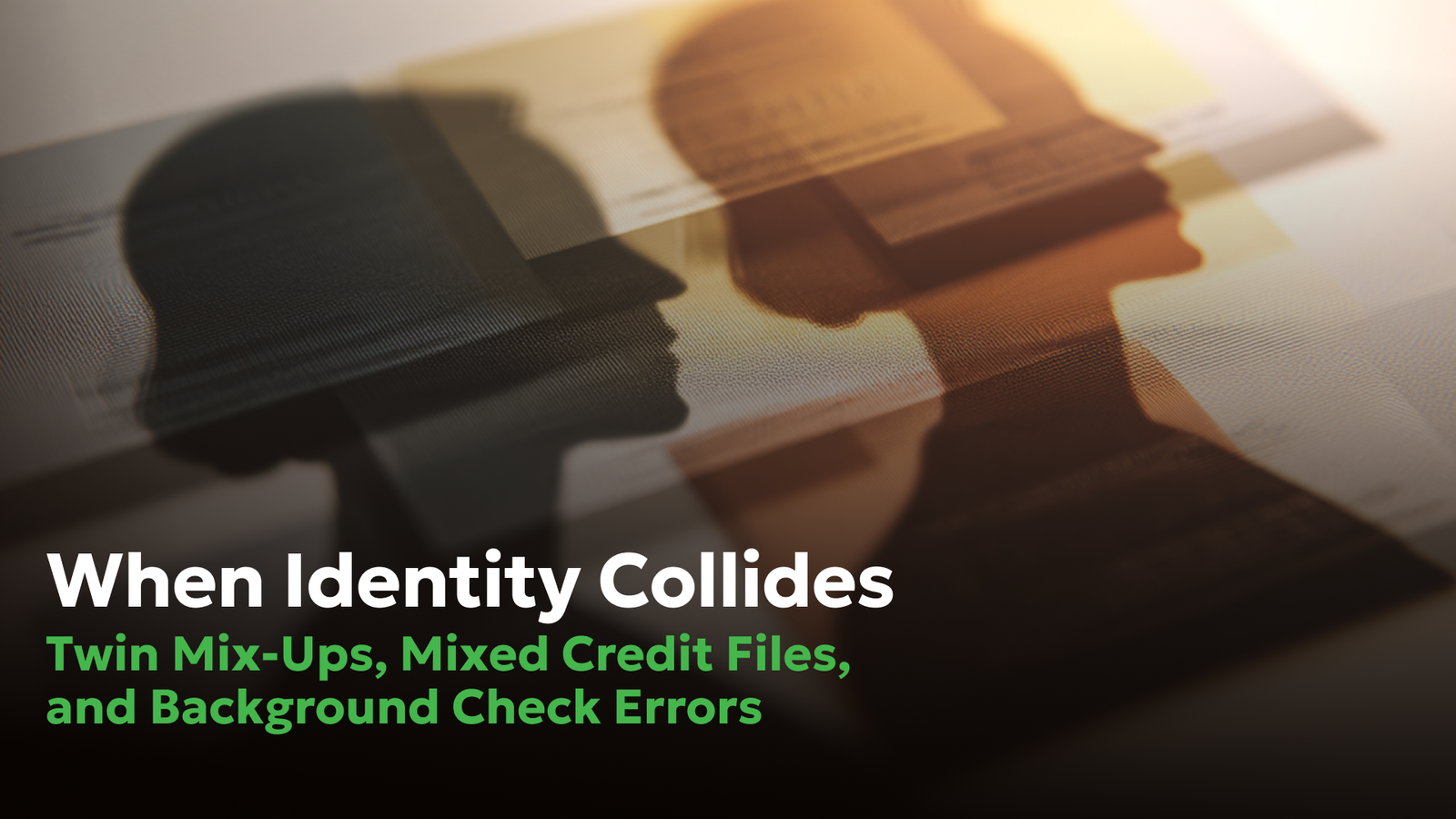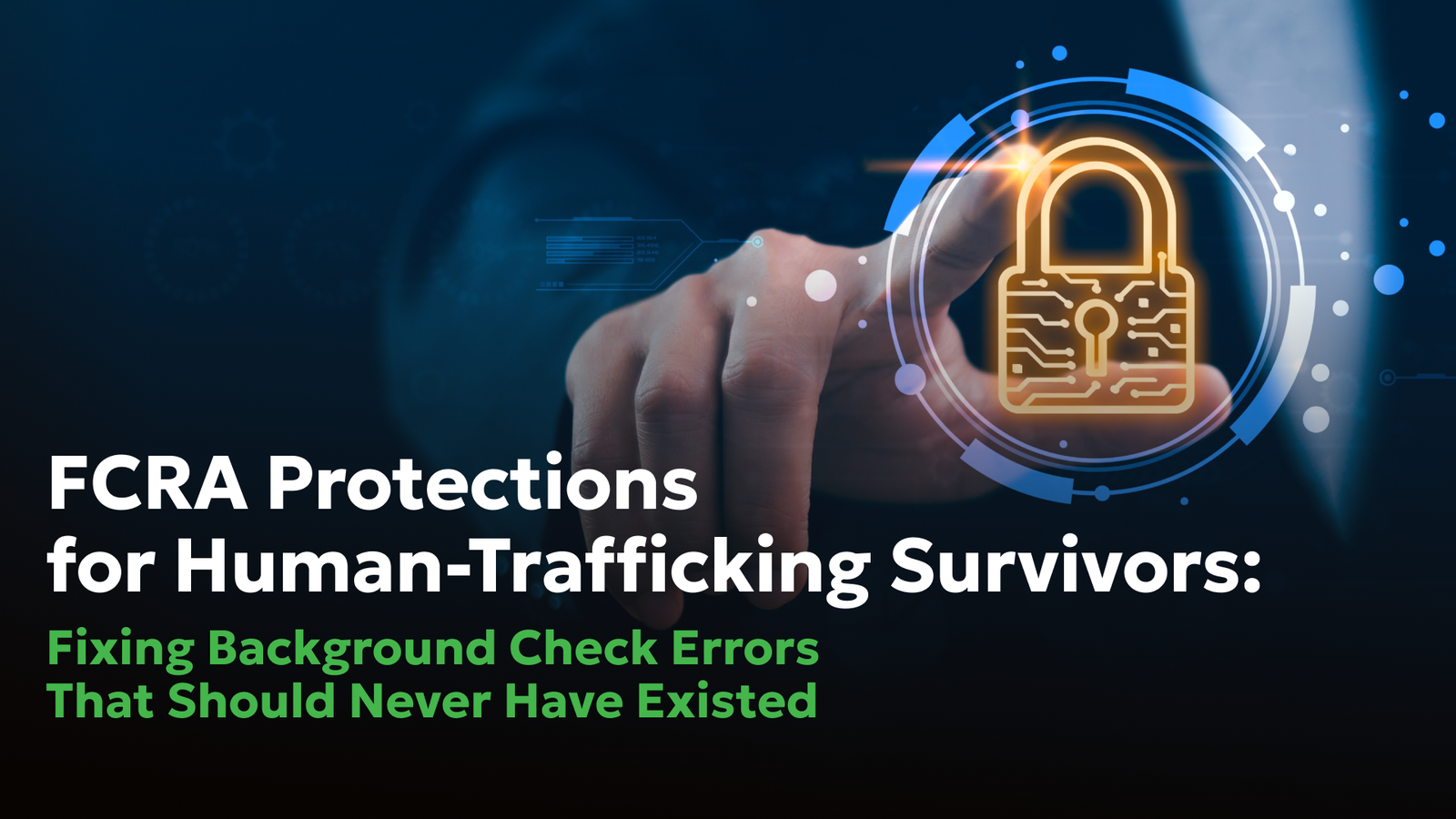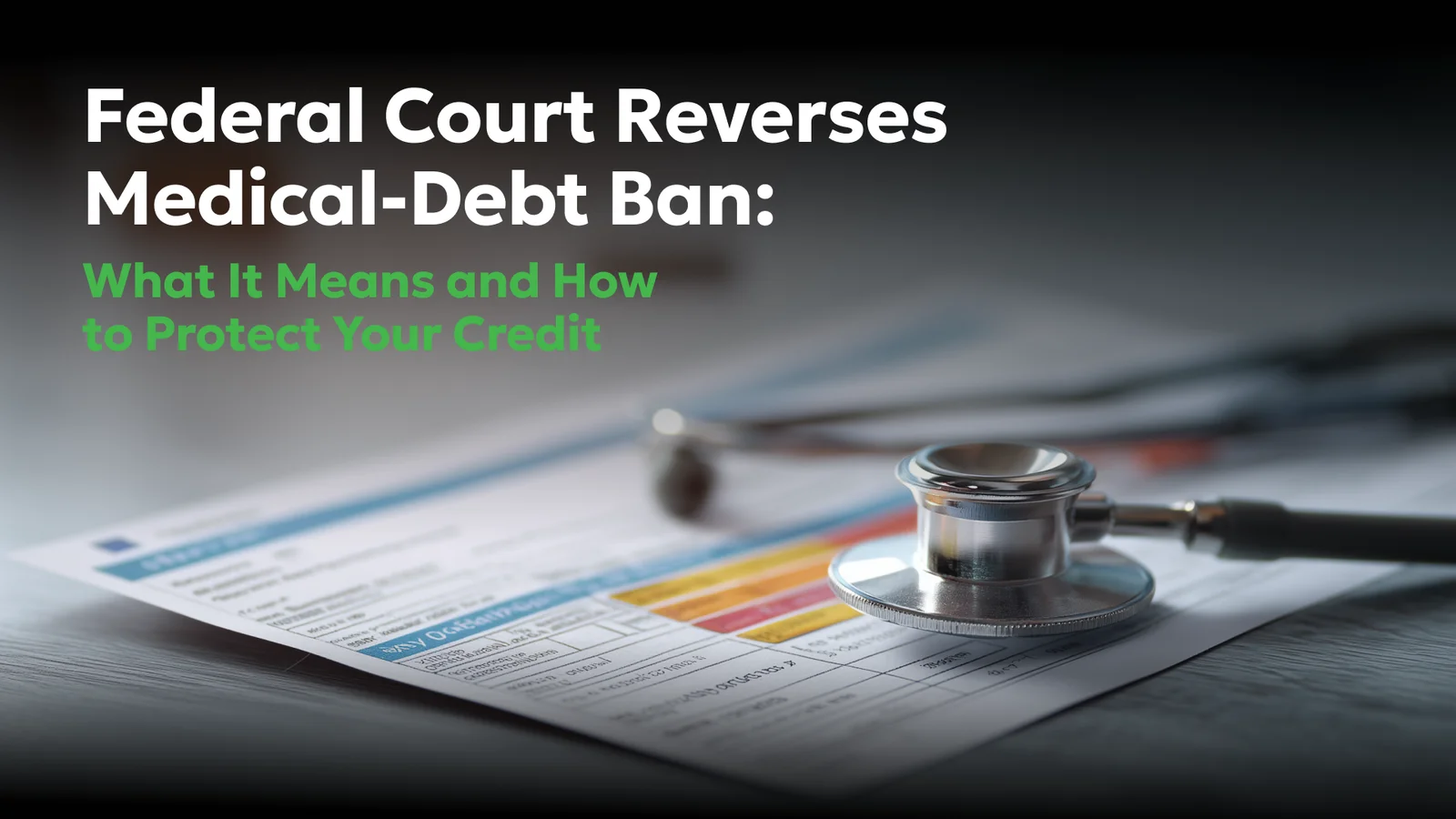How to Dispute a Credit Report and Win
- Blog
- Credit Reporting Inaccuracies
How to Dispute a Credit Report and Win

You have the right to an accurate credit report and to dispute errors. Learn how and how Consumer Attorneys can help.
Of course mistakes happen. But when they appear on your credit report, you have to take action. That usually means filing a dispute with the consumer reporting agency (CRA) that prepared the credit report. Sometimes, those CRAs don’t always do what they should (and what the law says they must). Here’s how to file a successful dispute.
Good credit—as evidenced by a good credit report—is essential for most things. Your capacity to buy a home, rent a home, buy a car, get a job, take a student loan, and many other things all hinge on your credit report. While accessing credit may still be possible with a flawed credit report, the terms of the loan or mortgage will not fairly reflect your creditworthiness.
But mistakes happen, right? Of course they do. This is why the United States Congress included a mechanism for consumers to report and dispute mistakes in the Fair Credit Reporting Act (FCRA). But lawmakers telling you that you can dispute credit report errors and actually doing so successfully are two different things.
As credit reporting attorneys, we have decades of experience disputing errors and inaccuracies in credit reports. This article contains some of what we’ve learned. It will guide you through understanding what's in a credit report, reasons to dispute it, how to dispute a credit report, how to dispute something on your credit report, the consequences of not disputing an inaccurate credit report, and how we are always happy to help.
What's in a Credit Report?
A credit report is a detailed record of your financial and credit history. Three primary organizations - called Consumer Reporting Agencies (CRAs) - prepare the credit reports upon which most lenders rely: Equifax, Experian, and TransUnion. A credit report includes the following information:
| Category | Details |
| Personal Information | Your name, address, Social Security number, date of birth, and employment information. |
| Credit Accounts | Details about your credit accounts, including the type of account (credit card, mortgage, auto loan, student loan), the date the account was opened, the credit limit or loan amount, the account balance, and your payment history. |
| Credit Inquiries | A list of inquiries from lenders and others who have accessed your credit report. These are categorized into “hard” inquiries, which occur when you apply for credit, and “soft” inquiries, which include pre-approval checks. |
| Public Records and Collections | Information about bankruptcies, foreclosures, lawsuits, wage garnishments, and any debts sent to collection agencies. |
Mistakes in any of these categories are disputable no matter how seemingly insignificant or how large the mistake or inaccuracy might seem. Every mistake can have huge consequences for your financial well-being.
What Are Some Reasons to Dispute It?
There are several reasons to dispute a credit report. Identifying and correcting these issues is essential to maintaining an accurate credit history. Common reasons for disputing a credit report include:
- Incorrect Personal Information. Errors in your name, address, or Social Security number can lead to the CRAs reporting incorrect data.
- Accounts That Aren't Yours. Sometimes, accounts belonging to someone else appear on your report due to a mixed file, identity theft, a misspelling of your name, or a host of other reasons.
- Incorrect Account Details. This includes incorrect account balances, credit limits, or inaccurate payment histories.
- Duplicate Accounts. An account may appear more than once, making your debt seem higher than it is.
- Closed Accounts Reported as Open. Accounts you've closed might still show as open, affecting your credit utilization ratio.
- Incorrect Public Records. Errors in bankruptcy filings, tax liens, or judgments can severely impact your credit score.
- Incorrect Inquiry Information. Unauthorized or inaccurate credit inquiries, hard or soft, listed on your report lead lenders to believe you are on the cusp of taking out more credit.
- Outdated Information. Negative information that should have been removed after seven years (or ten years for bankruptcy) may still appear on your report.
If you see any of these in your credit report - even if it is glaringly evident that it is an error - you must dispute it.
How to Dispute a Credit Report
Knowing how to dispute a credit report and how to remove errors from a credit report effectively are critical to promptly correcting errors so you can a) obtain credit and b) obtain it at the interest rates and terms and conditions that your real credit history indicates you should. Here's a step-by-step guide on how to correct errors on your credit report:
- Request Your Credit Report. Ask each of the three major CRAs to send you a copy of your credit report. The FCRA says you can get one free one per year, but that rule has since evolved so that you can now get a free copy every week.
- Review Your Credit Report. Carefully review your reports for any inaccuracies or errors.
- Contact Consumer Attorneys. It is never too early or too late to let us know what’s going on. We are happy to help you at any time.
- Gather Documentation. Collect any evidence that proves or disproves the error. This might include bank statements, loan documents, or correspondence with creditors.
- File a Dispute with the CRA. Write a dispute letter to the appropriate CRA. Clearly state the error, include your personal information, and attach copies of supporting documents. Send your dispute by certified mail so you don’t waive any of your rights.
- Contact the Creditor. Disputing the error directly with the creditor or information provider who reported the incorrect information can also be helpful.
- Follow Up. The FCRA says the CRA must investigate your claim, usually within 30 days. If the CRA resolves the dispute in your favor, it must correct the error. If it doesn’t or if it ignores you, then contact Consumer Attorneys.
What Happens If You DON'T Dispute an Error?
You don’t HAVE to dispute errors in your credit report. But if you don’t, there could be serious consequences:
| Impact | Details |
| Lower Credit Score | Incorrect information, such as late payments or high balances, can significantly lower your credit score, making it harder to qualify for loans or credit cards with favorable terms. |
| Higher Interest Rates | Those favorable terms include low interest rates. You might still qualify for credit with a lower credit score but at higher interest rates, which cost you more money over time. |
| Loan Denials | Errors on your credit report could lead to denial of credit applications, affecting your ability to purchase a home or car or finance other significant expenses. |
| Job Opportunities | Some employers check credit reports as part of the hiring process. An incorrect report might negatively impact your job prospects. |
| Decline in Mental & Emotional Health | Dealing with the fallout from incorrect credit information can be stressful and time-consuming and affect your reputation, your relationships, your mental health, and your overall well-being. |
A consumer protection attorney at Consumer Attorneys can help.
How a Lawyer Can Help
We can offer you legal advice. Everyone’s circumstances are different so there is no one-size-fits-all solution. We will assess your situation and offer legal advice. We can help you with your dispute letter and help you collect evidence. We can talk to the CRAs and the creditors on your behalf. We can represent you in a lawsuit if we determine that is the best course of action. That might mean negotiating a settlement with the CRAs or it might mean going to trial. We will support you through it all.
Frequently Asked Questions
To dispute a hard inquiry on your credit report, follow these steps: 1) Get a copy of your credit report from the credit bureau where the hard inquiry appears, 2) Review the report to identify any unauthorized or incorrect inquiries, 3) Write a dispute letter explaining the error, 4) Collect any relevant documentation that supports your claim, such as proof of identity theft or confirmation from the creditor, 5) Contact the credit bureau (Experian, Equifax, or TransUnion) by mail to file a dispute. and 6) Monitor the dispute process and follow up if necessary. Contact Consumer Attorneys at any time.
The best approach to dispute a credit report is not through an app, but by using U.S. certified mail. This method ensures your rights are preserved and provides a tangible record of your dispute. When you send a dispute via certified mail, you receive a receipt and can track the delivery, which is crucial if you need to provide evidence of your action. Write a detailed dispute letter, include copies of any supporting documents, and send it to the relevant credit bureau. This approach means the consumer reporting agency will formally recognize your dispute and handle it appropriately.
To dispute a credit report, send your dispute letters via U.S. certified mail to ensure your rights are preserved and to keep a record of the correspondence. Each of the major consumer reporting agencies—Equifax, Experian, and TransUnion—has specific addresses for disputes, which can be found on their respective websites. Using certified mail provides proof of delivery and helps track your dispute. Always include a detailed letter and copies of supporting documents to substantiate your claim.
If you lose a dispute on your credit report, the information in question will remain on your report. The relevant consumer reporting agency (CRA) will notify you of their decision and provide the reasons for upholding the disputed item. You have the right to add a statement of dispute to your credit report, explaining your side of the story. Additionally, if the CRA ignores your dispute, you believe the decision was unfair, or you know the information is inaccurate, misleading, or false, you can contact Consumer Attorneys for guidance and assistance.
To remove dispute remarks from your credit report, start by contacting the consumer reporting agency (CRA) that reported the dispute. You can reach out through U.S. certified mail. In your request, clearly state that you want the dispute remarks removed from your credit report. Be sure to include your personal identification details, the specific accounts in question, and any relevant documentation. Follow up to confirm that the dispute remarks have been removed. This process may take a few weeks, so monitoring your credit report for updates is essential.


Daniel Cohen is the Founder of Consumer Attorneys. Daniel manages the firm’s branding, marketing, client intake and business development efforts. Since 2017, he is a member of the National Association of Consumer Advocates and the National Consumer Law Center. Mr. Cohen is a nationally-recognized practitioner of consumer protection law. He has a we... Read more
Related Articles




R
ONGS™You pay nothing. The law makes them pay.






